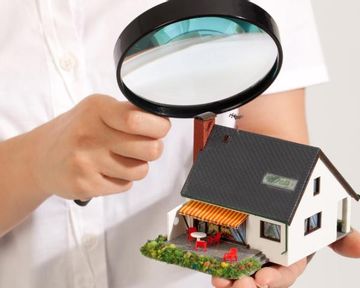What to Do (and What Not to Do) When You Want to Sell Your Home
Selling your home can be a daunting task, especially if you're a first-time seller. You may be unsure of where to start and what to do to ensure a successful sale. But fear not, with the right preparation and a knowledgeable team by your side, selling your home can be a smoother process than you might think. In this article, we will discuss what to do and what not to do when selling your home.
1. Seek a Qualified Real Estate Agent
The first crucial step in selling your home is to approach a qualified real estate agent who has experience in your area. A qualified agent can provide you with a market-related valuation of your property. This valuation not only gives you a realistic idea of your home's worth but also offers opportunities to enhance its value and saleability.
It's common for sellers to have multiple agents value their property, but it's essential to understand that not all valuations will align. Training and experience levels significantly impact the accuracy of a property valuation. Therefore, choosing an agent with an active presence in your area and access to comprehensive information and training is crucial.
2. Don't Overprice Your Property
One common misconception is that selecting the agent with the highest property valuation will lead to the highest sale price. However, Bill Rawson advises against this assumption, as it has been proven that overpricing a property can be detrimental to its sale. Overpriced listings tend to stagnate, and potential buyers become wary of properties that have been on the market for an extended period.
It's more important to choose an agent you can trust, someone who has your best interests at heart. Recommendations from friends or an agent with an excellent track record in your area can be valuable in this process. Selling a home is an emotional journey, but it's essential to trust your agent's honesty about all aspects of your property and its sale.
3. Consider a Sole Mandate
For those considering using multiple agents to sell their home, sticking to a sole mandate will usually provide better results. An exclusive mandate provides agents with the security they need to invest their full efforts into the property's marketing and sale. This commitment ensures that the property receives the attention it deserves without the threat of competing agents undermining their efforts.
4. Prepare Your Home for Listing
Once you've chosen an agent, it's advisable to sit down with them and discuss ways to improve your home's appearance before listing it. These improvements can be as simple as tidying up your garden, fixing broken fixtures, or applying a fresh coat of paint. Your agent might also suggest minor renovations that could significantly increase your property's value.
The value of objectivity in this process can not be overlooked, as it can be challenging to be objective about your own home. Your agent's fresh perspective and recommendations can be highly beneficial. Preparation doesn't have to be expensive. Even small steps like decluttering and depersonalizing your space before show days can enhance your property's appeal without breaking the bank.
5. Trust Your Agent and Let Them Work
With your home looking its best, it's time to relax and let your agent do their job. If your property is listed at the right price and marketed effectively, a successful sale should be on the horizon. Trust your agent to handle the sales process, negotiate offers, and guide you through the transaction.
In conclusion, selling your home doesn't have to be a daunting experience, especially if you follow the right steps and work with a trusted real estate agent. Begin by seeking a qualified agent, avoid overpricing your property, consider a sole mandate, and prepare your home for listing. By following these guidelines, you'll be on your way to a successful home sale. Trust your agent to guide you through the process, and soon, you'll be ready to move on to new and exciting opportunities.

